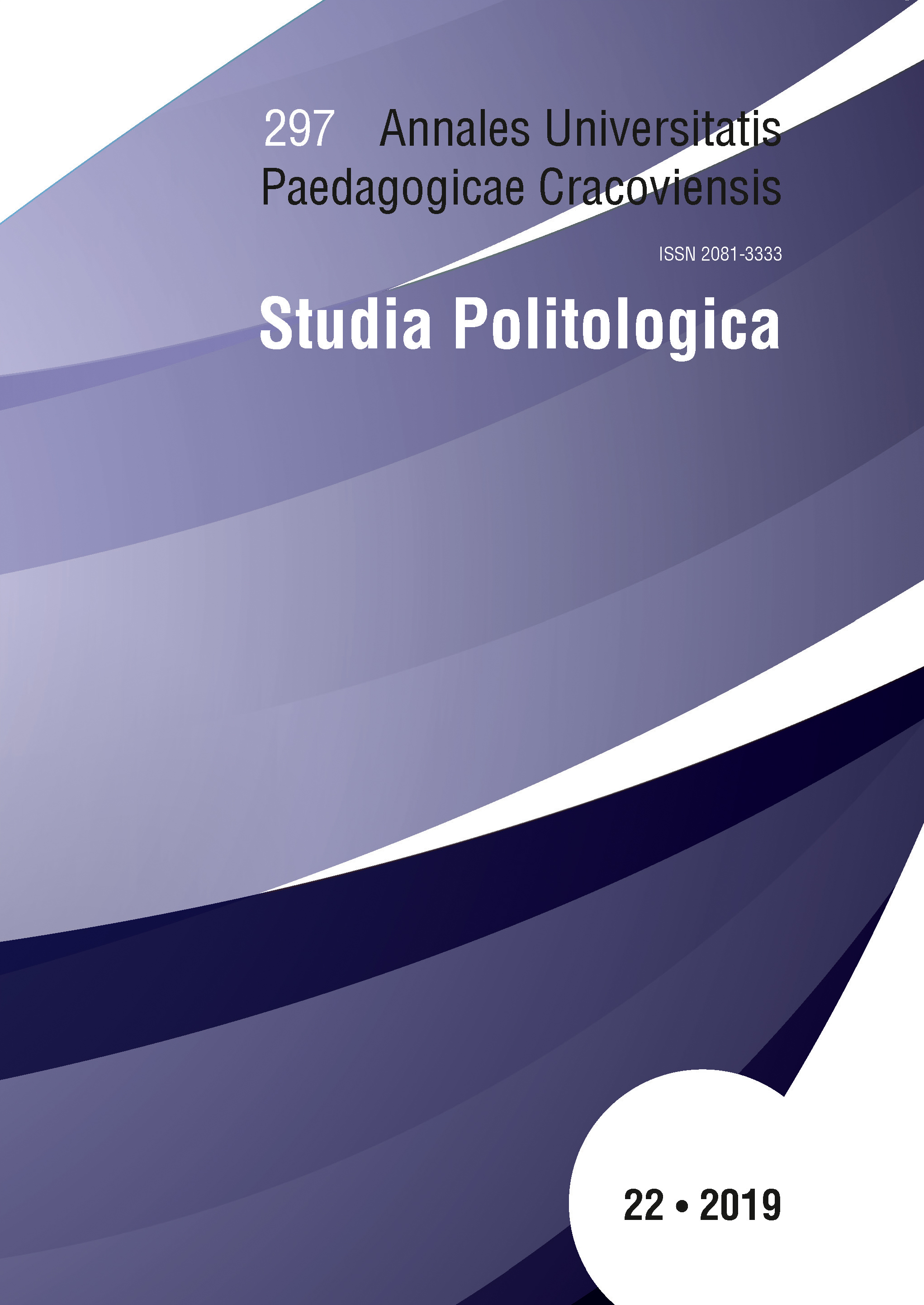Od kultury popularnej do geopolityki popularnej
Abstrakt
A large portion of geopolitical research of the last decades, especially geopolitical criticism, undertakes the concept of the importance of culture, value and identity in explaining the relation between the space and politics, which was an aspect underappreciated by classical and neoclassical geopolitics. It might be assumed that the currently growing role of popculture and mass-media in our lives lead to the establishment of a kind of a “cultural order”, a particular filter that decides on the perception of the world and, consequently, geopolitics. This article relates to this issue as it deals with the meaning of popular culture in contemporary geopolitical research, mostly accentuated by popular geopolitics. This review briefly analyses what popular geopolitics is, how to sketch its research area, stages of development, applied definitions and research methods. The starting point is the assumption that the hegemonic structure of geographical/geopolitical thinking that the elites are trying to impose on the society by using popcultural artifacts may, in fact, be reconstructed thanks to popular geopolitics studies. It shows the scale and reach of resistance towards such imaginations as displayed by the non-elites, who also reach for symbols, texts and images from popular culture. Such circumstances allow to observe either legitimizing or debunking a particular view of the world and geopolitics.Pobrania
Numer
Dział
Artykuły
Licencja
Redakcja przyjmuje do druku teksty oryginalne, wcześniej niepublikowane. Treść czasopisma jest dostępna na licencji Creative Commons (CC-BY-NC-ND 3.0 PL)
Licencja ta zezwala na wykorzystanie materiałów opublikowanych w czasopiśmie w celach niekomercyjnych np. komentarza, krytyki, informacji, archiwizacji, nauczania lub prowadzenia badań, z poszanowaniem aktualnie obowiązującego prawa autorskiego (ustawa z dnia 4 lutego 1994 r. o prawie autorskim i prawach pokrewnych Dz.U. 1994 nr 24 poz. 83 z poźn. zm.). Zgodnie z wymogami licencji, konieczne jest dokładne podanie źródła cytowania lub parafrazowania oraz zachowanie tekstu w oryginalnej postaci (zakaz tworzenia utworów zależnych).

